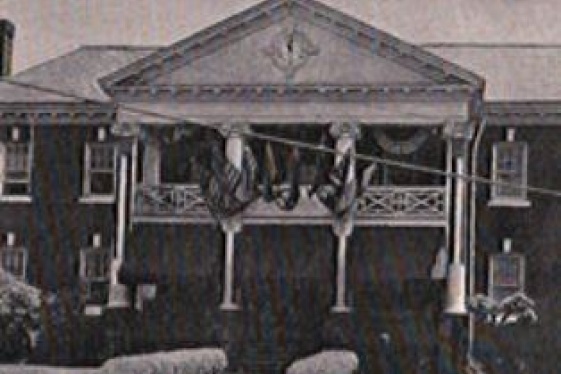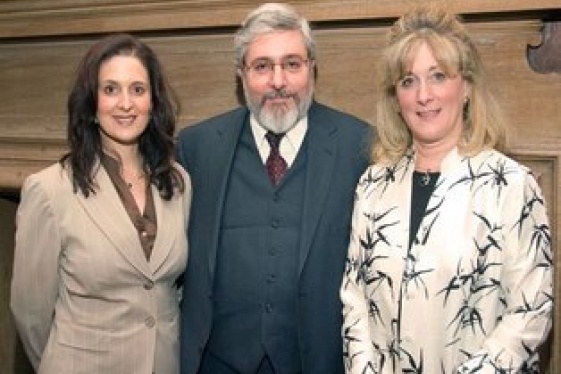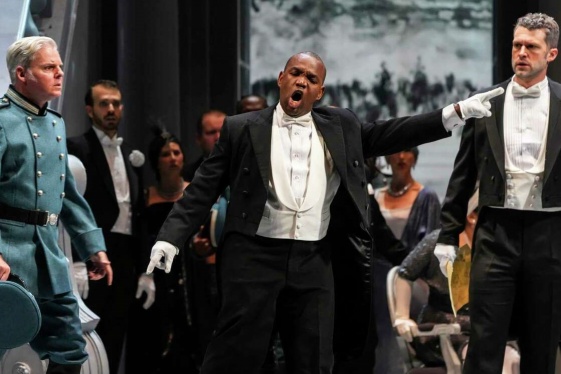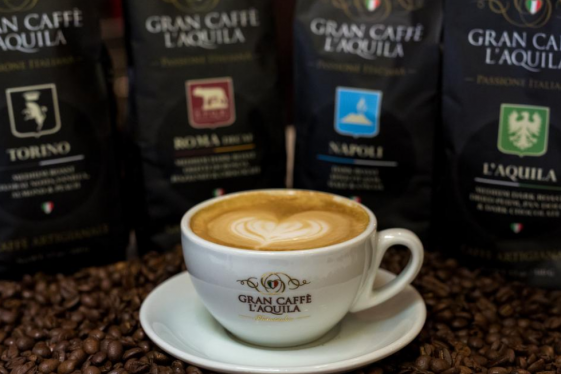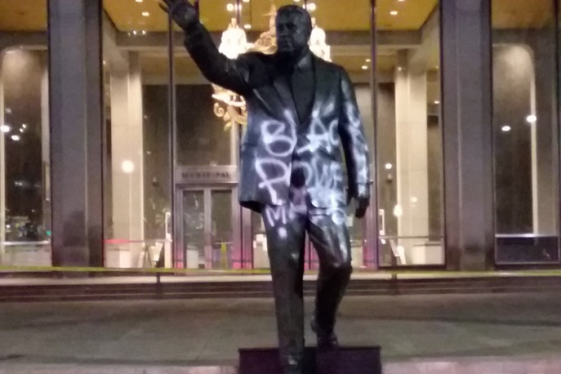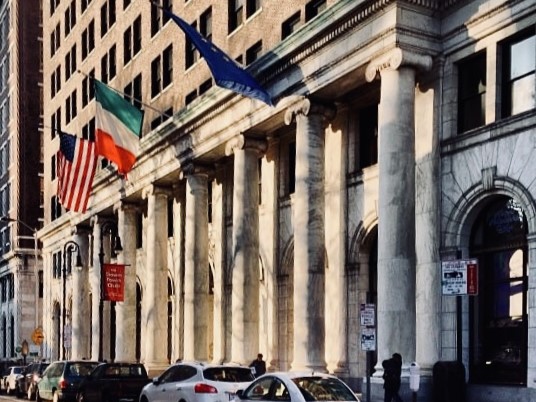
Exhibit on the Filangieri-Franklin Correspondence at the Italian Consulate General in Philadelphia Illuminates Historic Italian-American Ties

On April 24, 2024, the General Consulate of Italy in Philadelphia will host the opening reception of the exhibit "The Filangieri-Franklin Correspondence: an Enlightening Dialogue Between Italy and the USA."
This exhibit, curated by Professor Amedeo Arena of the University of Naples Federico II, delves into the letters exchanged between Neapolitan Enlightenment thinker Gaetano Filangieri and American founding father Benjamin Franklin from 1782 to 1788.
The exhibit, inspired by a previous one displayed at the Italian Cultural Institute of San Francisco in September 2022, features a colophon, introducing Filangieri and Franklin and describing the context in which their correspondence started, as well as nine panels, each displaying the first page and describing the contents of the nine letters comprising the Filangieri-Franklin correspondence: six letters from Filangieri to Franklin, two from Franklin to Filangieri, and one from Filangieri's widow, Charlotte Frendel, to Franklin.
The opening reception of the exhibit, already fully booked, will commence on April 24 at 5:30 PM with remarks from Cristiana Mele, the Consul General of Italy in Philadelphia. The event will further include introductory speeches by Roger Bagnall, president of the American Philosophical Society, and David Brigham, CEO of the Historical Society of Pennsylvania, with Amedeo Arena providing a presentation on the exhibit and the enduring significance of the Filangieri-Franklin correspondence for Italian-American relations.
**Cristiana Mele**, Italy’s Consul General in Philadelphia, commented: "From April 24, our Consulate General will host an exhibition that retraces a correspondence across the Atlantic, underscoring the varied levels of connection between Italy and the United States, interweaving Neapolitan Enlightenment and American ethos. This is an enlightening example of how dialogue and exchange of ideas are at the foundation of the best political enterprises aimed at enduring and inspiring across generations."
**Roger Bagnall**, President of the American Philosophical Society, shared his enthusiasm: "It’s a pleasure for the American Philosophical Society to join in commemorating the ties of intellectual friendship that connected our founder, Benjamin Franklin, with the Neapolitan political philosopher Gaetano Filangieri."
**David Brigham**, CEO of the Historical Society of Pennsylvania, commented on the significance of the correspondence: "The correspondence between Filangieri and Franklin shows the importance of men of letters in spreading the ideals of the enlightenment, ideals that united peoples beyond national borders in a shared pursuit of constitutional governments that are just, fair, and inclusive. These letters are a key example of how ideals can transcend the confines of nationalisms to promote the shared cause of humanity."
**Amedeo Arena**, curator of the exhibit, reflected on the deep connections revealed by the correspondence: "Filangieri wished to travel to Philadelphia to work with Franklin on drafting the 'Great Code' of the United States. That journey never happened, and they never met, yet their letter exchange and their writings reveal a deeper 'correspondence,' a remarkable commonality of ideals and values that have shaped the identities of Italy and the United States over time. I am extremely honored to present this exhibit in Philadelphia, the city Filangieri considered 'the asylum of virtues,' 'the homeland of heroes,' and 'the only place' where he could be happy."
The exhibit is sponsored by three municipalities in Campania where Filangieri lived (Naples, Cava de’ Tirreni, Vico Equense), two universities (the University of Naples Federico II and the University of Pennsylvania), five cultural institutions (the American Philosophical Society, the Historical Society of Pennsylvania, the Museo Civico Filangieri, and the Accademia Filangieri di Partenope) and two Italian-American organizations (the National Italian American Foundation and the Sbarro Health Research Organization).
**Professor Gaetano Manfredi**, Mayor of Naples, emphasized the historical journey represented by the exhibition: "This exhibition takes us on a centuries-old journey that not only retraces history but also the identity of two nations, Italy and the United States, bound by shared values of freedom and tolerance. The significant influence of Gaetano Filangieri on Benjamin Franklin, as documented by their extensive correspondence exhibited at the Consulate General of Italy in Philadelphia, allows us to proudly claim that there is a bit of Naples in the American Constitution. I greatly appreciate Professor Arena's efforts in bringing this invaluable historical heritage to the forefront."
**Giuseppe Aiello**, Mayor of Vico Equense, stated: "Events like this strengthen the concept of identity. Vico Equense is not just a wonderful city, but also a cradle of excellence that makes this territory one of the most evocative in the world. The influence of an outstanding mind like that of Gaetano Filangieri on the American founding fathers allows us to appreciate the depth of his thought. The exhibition starring him alongside Benjamin Franklin will help to strengthen the bond between realities that are materially distant, but united by immortal values."
**Vincenzo Servalli**, Mayor of Cava de’ Tirreni, expressed: "The patronage of Cava de’ Tirreni, also granted to the previous exhibition presented by Professor Arena in San Francisco, signifies our city's full endorsement of remembering and centering our reflection on the extraordinary figure of Filangieri, who wrote a significant portion of 'The Science of Legislation' here. I look forward to further exploring the themes addressed in this exhibition in our city, perhaps in an initiative that could be held in the town hall of Cava de’ Tirreni itself. My compliments to the organizers."
**Professor Ann Elizabeth Moyer** from the University of Pennsylvania remarked: "This epistolary exchange is an essential chapter in the history of the Republic of Letters. It demonstrates the common interest in legislation, human rights, and reason that was prevalent in Philadelphia and Naples, of which Franklin and Filangieri are the most emblematic figures."
**Paolo Jorio**, Director of the Museo Civico Filangieri, commented: "The correspondence between Filangieri and Franklin is a source of pride for us Italians, particularly for Naples, and it further solidifies the long-standing and fruitful relations of friendship between Italy and the United States."
**Benedetto Migliaccio**, President of the Accademia Filangieri di Partenope, said: "It is necessary to reconstruct the principles and ideals of the Filangieri-Franklin correspondence, whose themes remain as relevant today as ever. Therefore, we welcome with enthusiasm the display of the letters between these two thinkers, now preserved at the Museo Civico Filangieri in Naples, founded by Filangieri’s nephew, and at the American Philosophical Society in Philadelphia, founded by Benjamin Franklin himself in 1743."
**Professor Antonio Giordano**, President of the Sbarro Health Research Organization and Board member of the National Italian American Foundation, shared his gratitude: "I wish to express my gratitude to Professor Arena for highlighting Filangieri’s role in the development of American constitutionalism. As an Italian leading a research institute in Philadelphia for many years, I can attest to the importance of personalities like Filangieri, Beccaria, and Mazzei for the identity of the Italian-American community. I fully support initiatives like this, which celebrate the significant contribution of Italians to the progress of the United States.”
You may be interested
-
Ethnic clubs are fading into Beaver County's...
By Tom Davidson When Dominic "Hawk" Santia was a boy, he'd tag along with his fat...
-
I Piccoli Cittadini: incontro di educazione...
Saturday, October 24, 10-12 AM in EDT, 1026 Public Ledger Building – 150 South Indepe...
-
Italian restaurant opens in Conewago Townshi...
by Melody Asper Hanover's newest restaurant may seem like an old friend to anyone...
-
President and CEO of Furia Rubel Elected Jus...
Furia Rubel Communications, Inc., an award-winning integrated and strategic marketing and...
-
`Otello,' Rossini's not Verdi's, staged in Ph...
Rossini’s “Otello” premiered in 1816, and the musical adaptation of Shakespeare's famous p...
-
'A silver lining': Gran Caffe L’Aquila finds...
Philadelphia’s Gran Caffe L’Aquila is no stranger to tragedy. In fact, the landmark Italia...
-
'A Ziarella va in America: tournèe in Arizona...
‘A Ziarella va in America. Non è un titolo da film, ma una piacevole realtà. Il...
-
'Black Power' Spray-Painted on Statue of Pola...
The bronze statue of Frank Rizzo, Philadelphia's polarizing former police commissioner and...



